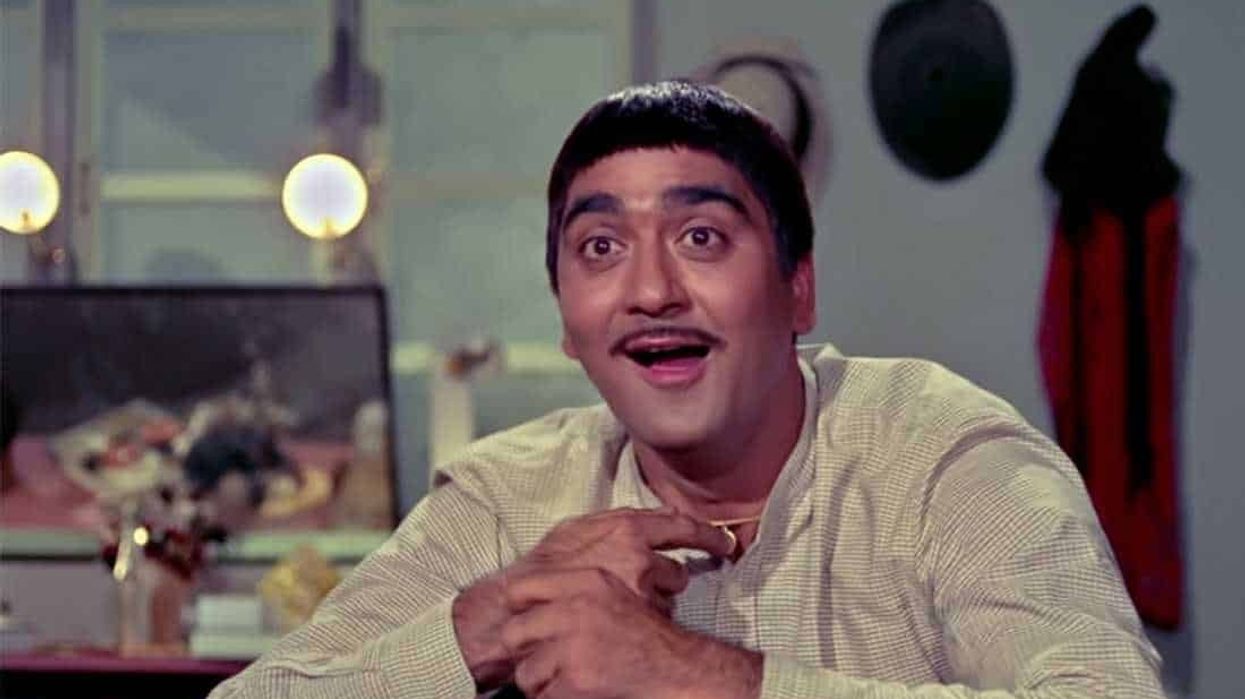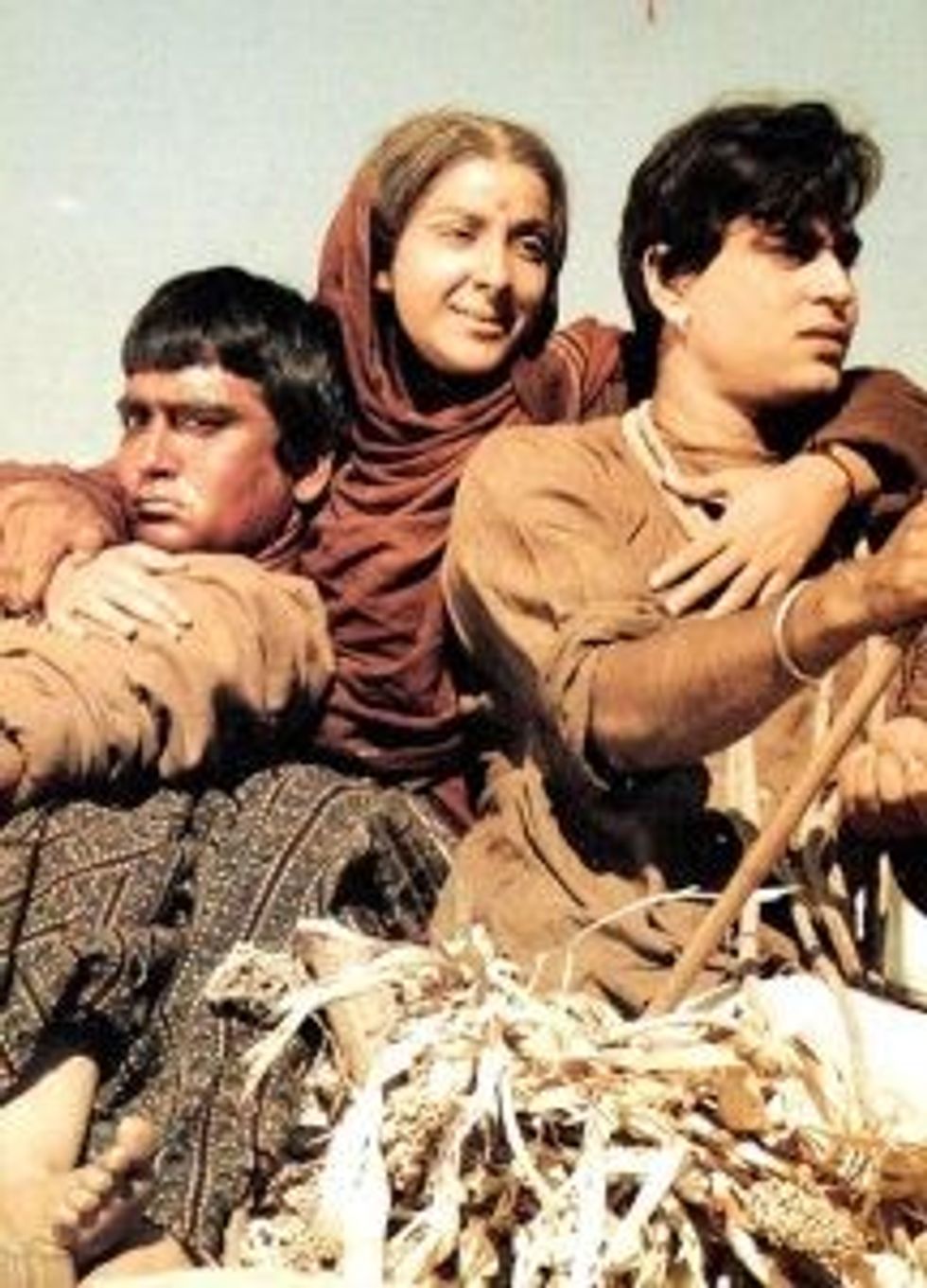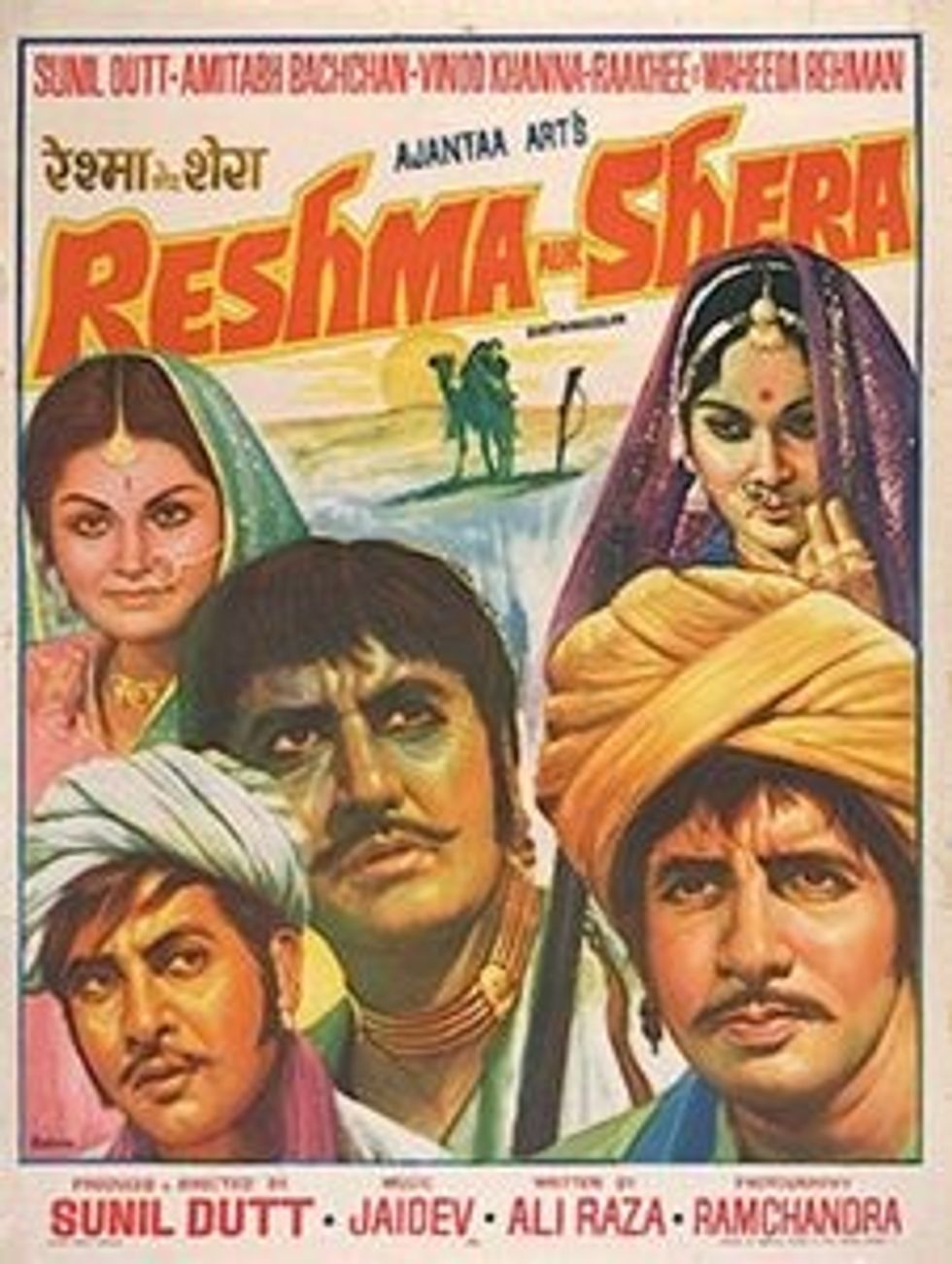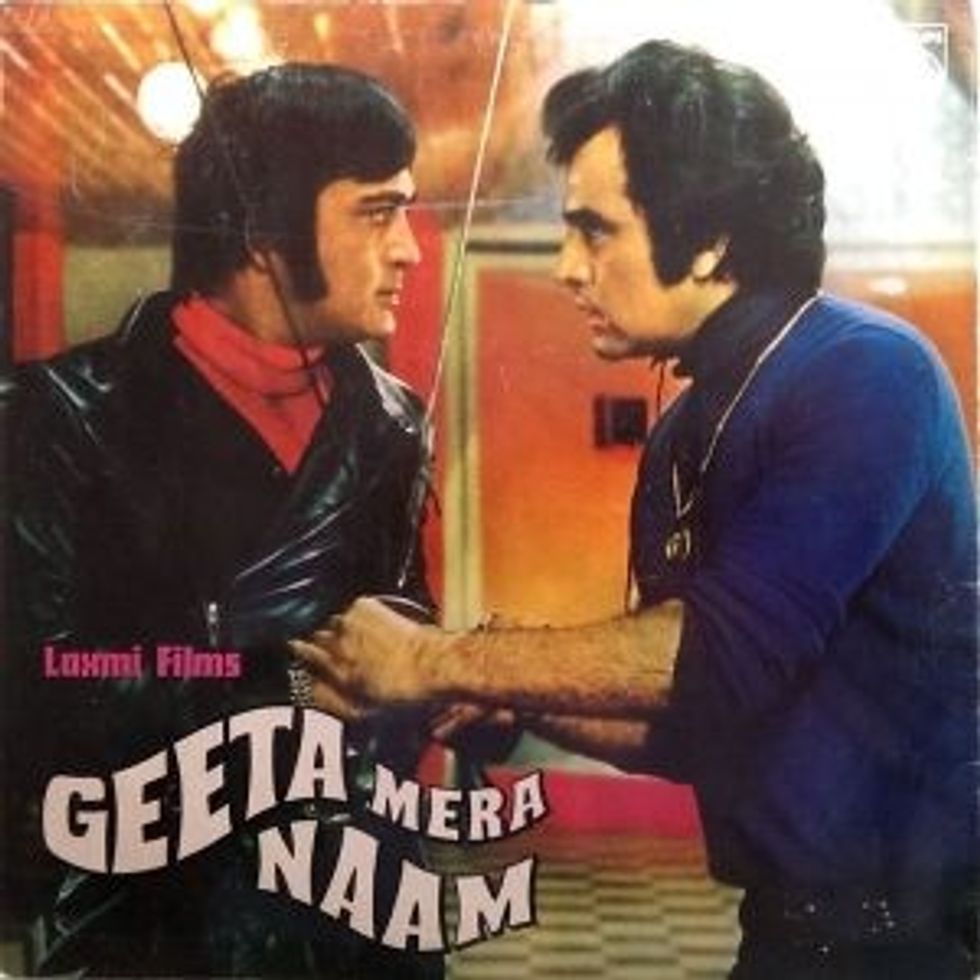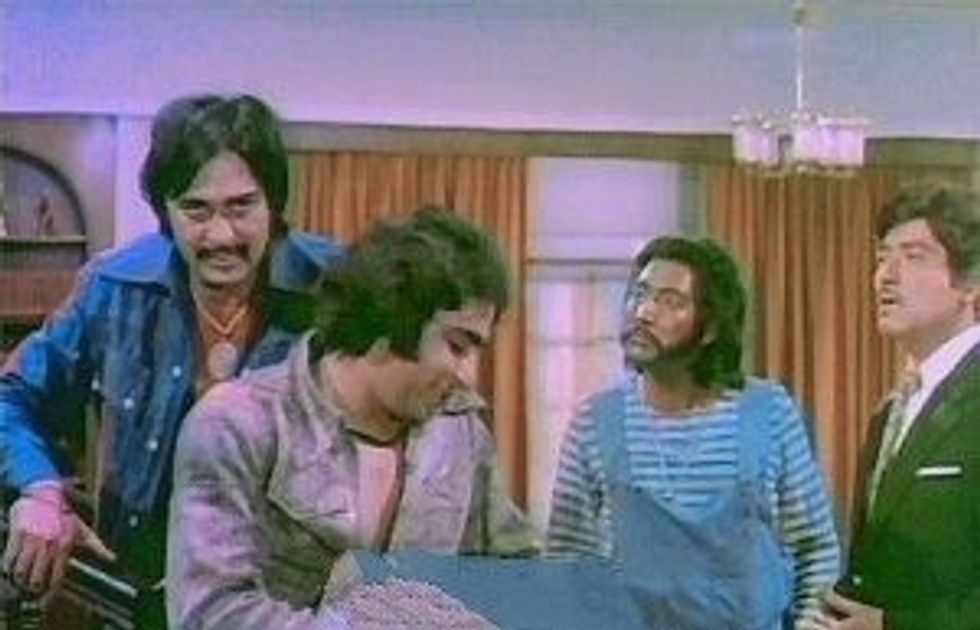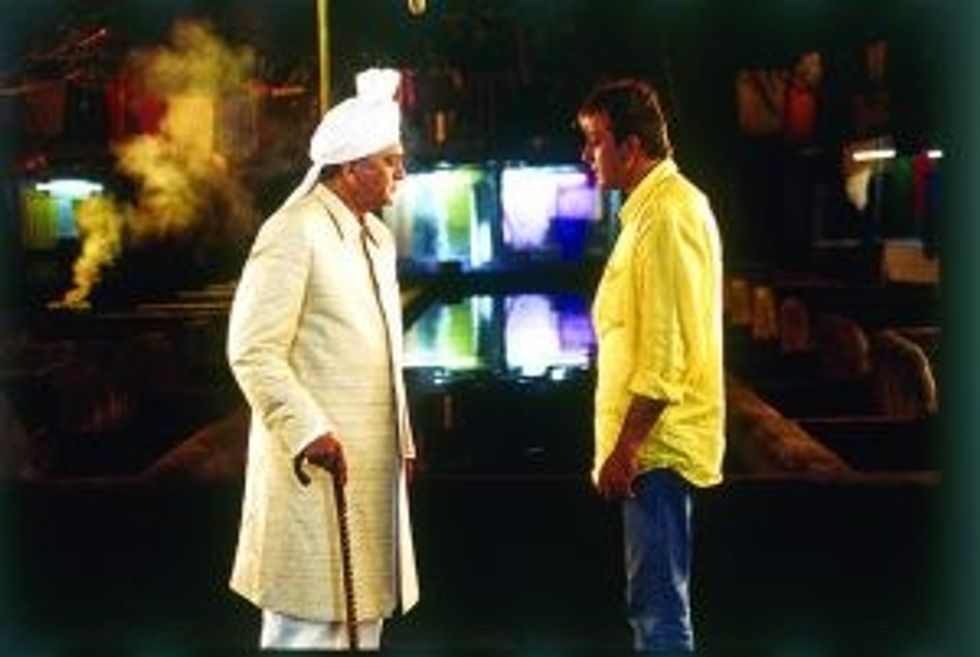TWENTY FACTS ABOUT THE BOLLYWOOD LEGEND’S GREAT CAREER, TO MARK HIS DEATH ANNIVERSARY
by ASJAD NAZIR
THIS week marks the death anniversary of legendary Bollywood star Sunil Dutt, who passed away on May 25, 2005, aged 75.
Apart from being one of the greatest Hindi film stars of all time, he was also a producer, director and in later life, a respected politician. The father of popular actor Sanjay Dutt and husband of Hindi cinema icon Nargis inspiringly rose from humble beginnings to movie superstardom and left a permanent mark in the Indian cinematic landscape.
Eastern Eye decided to mark his death anniversary by presenting 20 interesting facts about multi-talented star Sunil Dutt and his impressive body of film work.
- Sunil Dutt started off as a host on Radio Ceylon and would cover major Bollywood premieres for his show Lux Ke Sitaray. While covering Dilip Kumar’s film Shikast in 1953, the handsome young presenter with perfect diction was spotted by writer-director Ramesh Saigal and made his acting debut two years later in his film Railway Platform (1955).
- The actor was born Balraj Dutt, but Ramesh Saigal changed his name to Sunil Dutt for his debut, so audiences didn’t confuse him with successful Bollywood star Balraj Sahni.
- The original choice to play the rebellious son in Oscar-nominated Bollywood film Mother India (1957) was Hollywood star Sabu Dastagir, but he couldn’t get a work visa and unknown actor Sunil Dutt was cast.
- Blockbuster hit Mother India not only turned Dutt into star, but it also enabled the newcomer to meet Bollywood superstar Nargis. He saved her life during a deadly fire on set, they fell in love and married a year later.
- Years later Dutt’s daughter Namrata Dutt would coincidentally marry his Mother India co-star Rajendra Kumar’s actor son Kumar Gaurav.
- Successful Dutt starrer Sadhna (1958) was the last film Bollywood’s greatest filmmaker Yash Chopra worked on as an assistant and made his directorial debut a year later. Chopra would later cast Dutt in Waqt, which became the biggest blockbuster of 1965 and also popularised the multi-starrer.
- The actor’s acclaimed drama Sujata (1959) was an official selection at the Cannes Film festival, but it missed out on the top prize.
- The actor’s often underrated film Ek Phool Char Kante (1960) was inspired by 18th century English theatre play A Bold Stroke for a Wife, which was first performed in 1718. The film would later be remade in 2000 as Dulhan Hum Le Jayenge, with Salman Khan and Karisma Kapoor in the lead roles.
- He won a Filmfare Best Actor award twice for his role in Bollywood classics Mujhe Jeene Do (1963) and Khandan (1965), respectively.
- The actor made his directorial debut with Yaadein (1964), which was the first ever film with only one protagonist. He also played the lead role in the award-winning film, which was way ahead of its time.
- His films Amrapali (1966) and Reshma Aur Shera (1971) were India’s official entries into the Oscars in the best foreign language film category, but neither of the films were nominated.
- His laugh-riot Padosan (1968), which is regarded as one of the greatest comedies in Bollywood history, was a remake of Bengali language film Pasher Bari (1952), which itself was based on a short story.
- Legendary actor Vinod Khanna got his first acting break after he was spotted by Sunil Dutt and cast in Man Ka Meet (1968). Although Khanna played a villain in Dutt’s home production, he would go on to become one of Bollywood’s all-time greatest heroes.
- Bollywood’s greatest ever star Amitabh Bachchan got an early acting break during his struggling days thanks to Sunil Dutt, when he was cast in his hit home production Reshma Aur Shera (1971).
- He starred opposite iconic actress Madhubala in her final film release Jwala (1971). Unfortunately, it was a long time in the making due to her ill health and looked dated by the time it released.
- Legendary leading lady Sadhana made her one and only outing as a director with his film Geeta Mera Naam (1974), where she also played the title role as well as cast Feroz Khan in a key role. It would be one of the very few films featuring A-list leading men, which was directed by a woman.
- His film 36 Ghante (1974) was a remake of Hollywood film The Desperate Hours (1955), which was based on a 1954 novel of the same name.
- He directed his son Sanjay Dutt’s debut film Rocky (1981) and also made a cameo in it. Sadly, his wife Nargis died just weeks before the release of their son’s debut film.
- The actor retired from acting in the early 1990s, but he made a return with a winning cameo in his son Sanjay Dutt’s smash hit film Munna Bhai MBBS (2003), two years before his passing.
- Paresh Rawal played Sunil Dutt in Bollywood mega-hit Sanju, which is based on the life of his son Sanjay Dutt.
